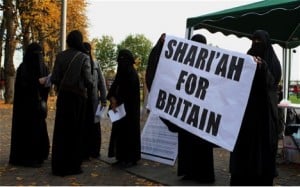Last month, the Lahore High Court made an interesting decision: to hand over a Pakistani child, Amina Tarar, to her French mother. The case made headlines because the child’s mother, Ingrid Brandon Burger, is a non-Muslim. Amina’s father, Abdul Razzak Tarar, had taken the child from France to Pakistan in 2005, but the parties disagree on whether the mother had consented at the time. What is known is that French courts had given the mother custody shortly prior to Amina leaving the country, and that Ms. Burger had also filed a custody case in another court in Pakistan, which she also won. So this new case was about enforcing two custodial agreements already in place.
In international custody cases, you can go about the governing law in a number of ways: was the child taken illegally from his or her country of residence, who was designated as the custodial parent at the time of separation and divorce, and so on. In forcing the father, who was also wanted for kidnapping, to hand over Amina, the judge, Justice Manzoor Ahmad Malik, chose to rely on Pakistani law and enforce judgements from both French and another Pakistani court granting the mother custody. The letter of the law is, namely, that children of Amina’s age (11) are too young to be kept away from their mothers under Pakistani law.
I’m surprised at the lack of media coverage on a case that is at the crossroads of fathers’ rights and Islamic law and the development of the Pakistani judiciary. I think the fact that the mother is a non-Muslim is a sideshow to what is really a fascinating piece of case law for Pakistan. There are many elements of this case which make it a landmark decision. Firstly, we are dealing with the effective enforcement of a foreign custody judgment (the French one). Secondly, the LHC confirmed the judgement of a second custodial court, so the threat of forum shopping (when people go to different courts hoping for difference outcomes) was denied.
For me, there are two things going on in the judge’s decision: 1. The LHC is showing the strength of the Pakistani judiciary to interpret and enforce rulings (even those from other jurisdictions) based on Pakistani law; and 2. Legal precedents and Pakistani laws that have their origins in religious jurisprudence (in this case, mothers having custody of minor children) are interpreted in a unique way and are being applied to non-Muslims. What is even more amazing is that, according to the Tribune, this is the second case for the Lahore High Court where they have ruled in favor of a non-Muslim mother. The cases were similar in that both Ms. Collin (the mother in the first case) and Ms. Burger had French custody judgements on their side, although Ms. Collin had a son and not a daughter.
I think this case does bring up a number of questions. I’m torn because the case law sets a great precedence for parents seeking to enforce custody judgments: If the LHC is involved, it won’t be as easy anymore to hide your kid in Pakistan if your marriage goes south. But morally and personally, the case brings up a lot of troubling questions. For some, the bingo is: Should custody of Amina have been given to a non-Muslim? Does it matter? Also, couldn’t it be argued that, since Amina has already spent so many years away from her mother and is now nearing puberty, the Islamic argument, on which the Pakistani code is based, regarding how children shouldn’t be kept away from their mothers, no longer applies?
The most troubling in this long tug-of war is, what about Amina? She likely no longer has any useful memories of France or of her mother, or the language skills to guide her into her teen years, which are tumultuous enough. Regardless of the circumstances of how she got there, I think it is safe to claim that being in Pakistan with her Pakistani family is all she knows. It is tangential but useful to mention that certain countries’ immigration laws start placing conditions for regular family reunification at her age due to the hurdles she will have to overcome in terms of language learning and the famous “integration” in moving to a different country. Finally, I think the wrong questions are being asked regarding the religion of the mother, because it is immaterial, except insofar as the “unique” interpretation mentioned above. For me, this is where fathers’ rights come in: what if the situation were reversed? Aren’t we usually more sympathetic to mothers who kidnap their own children? What if it was a father trying to gain access to his child? Could it be argued that since her father illegally took her from France, his rights as a father should be discounted? What if the mother had done the same thing? In your opinion, what would have been the right decision for Amina?











